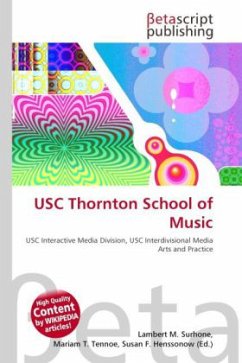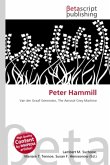Please note that the content of this book primarily consists of articles available from Wikipedia or other free sources online. The New German School (German: "Neudeutsche Schule") is a term introduced in 1859 by Franz Brendel, editor of the Neue Zeitschrift für Musik to apply to certain trends in German music. Although the term has frequently been used in essays and books about music history of the 19th and early 20th centuries, a clear definition is complex. In addition, those held to be representatives of the "New German School" are not all practising musicians. The term is thus problematic. It has been used by different persons at different times with different meanings. It is generally agreed that Franz Liszt was one of the most prominent representatives of the "New German School". There is also a consensus that Johannes Brahms did not take part. Beyond this, interpretations differ. The present article sets out the main elements associated with this term. Representatives of the New German School conflicted with more conservative musicians in the so-called War of the Romantics.
Bitte wählen Sie Ihr Anliegen aus.
Rechnungen
Retourenschein anfordern
Bestellstatus
Storno








